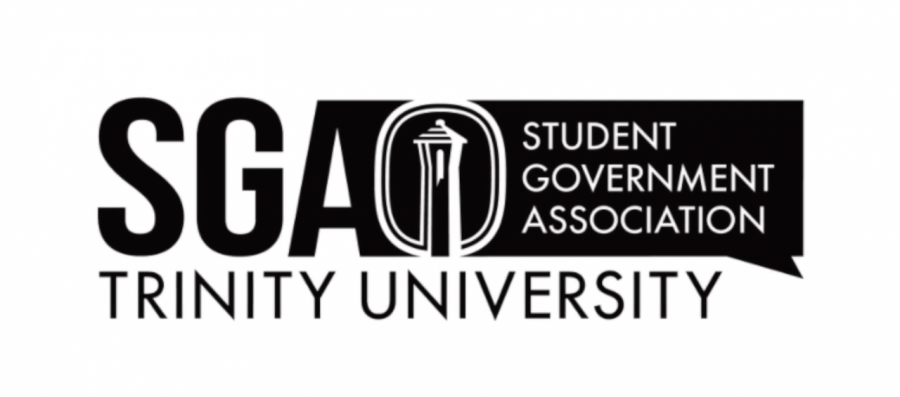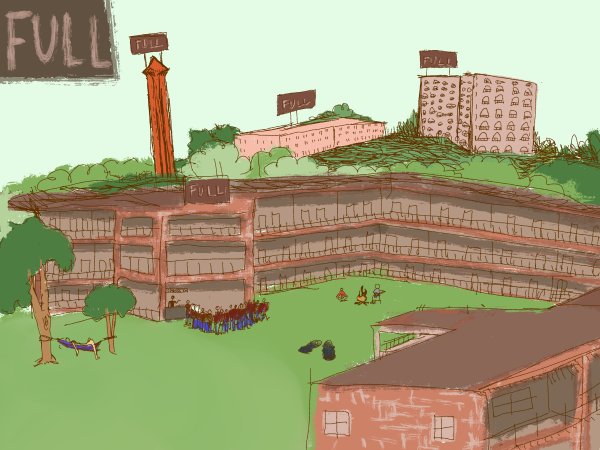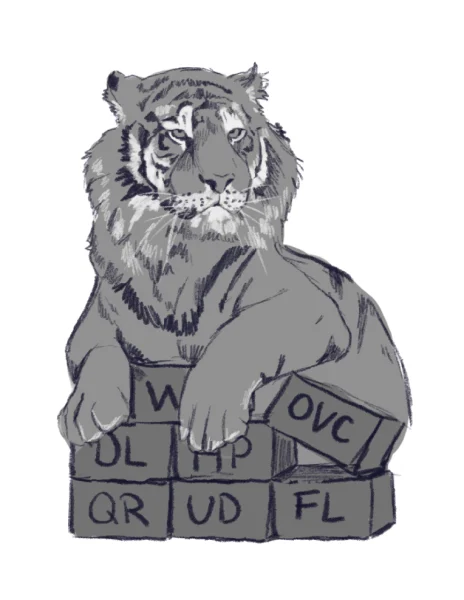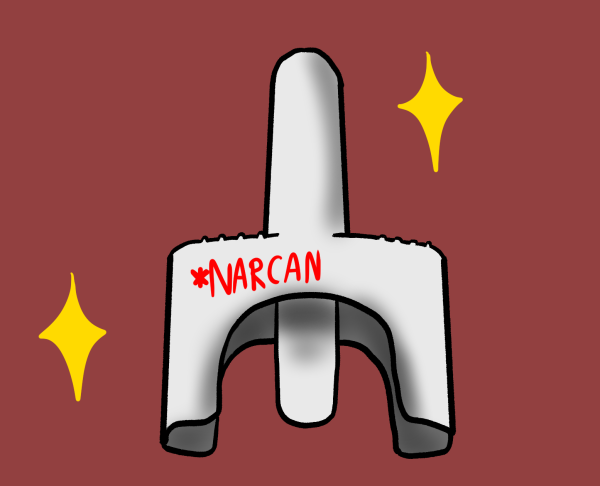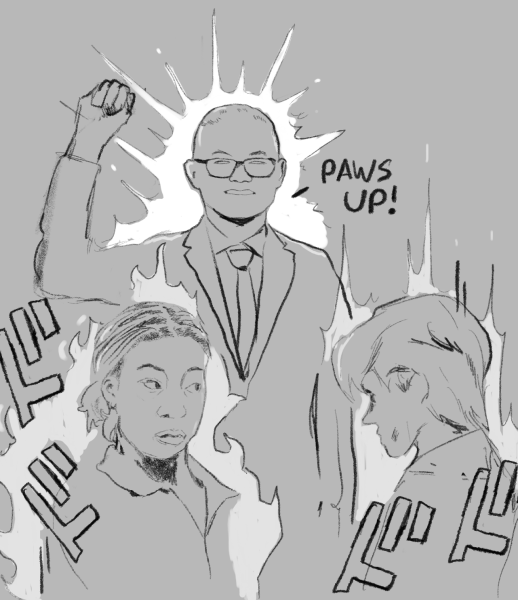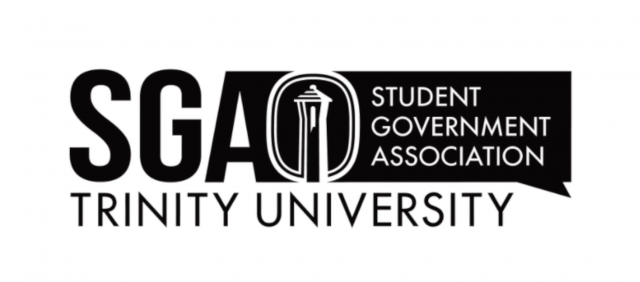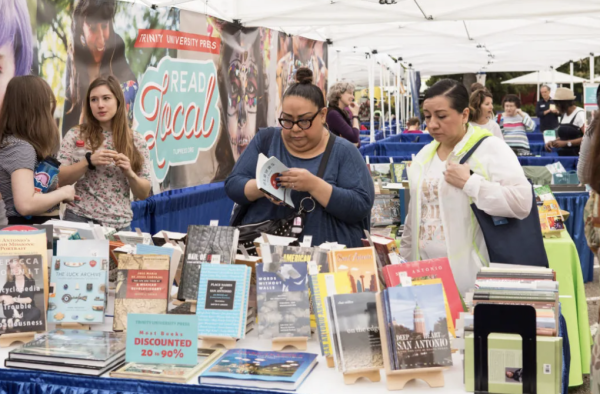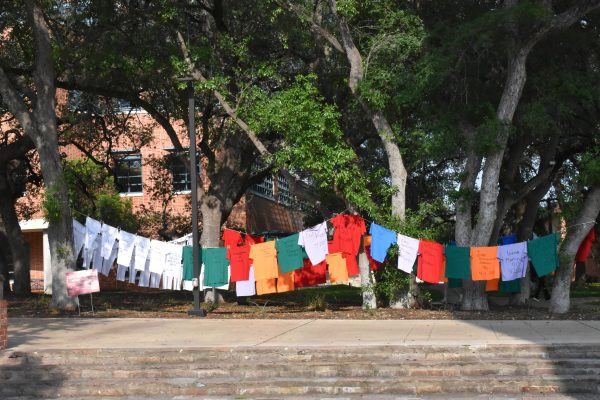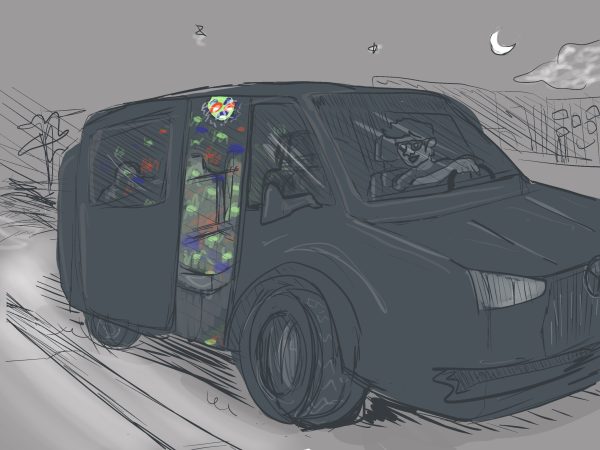Previously, on SGA: Changes to come
Climate check
This week’s climate check began with concerns regarding TigerPAWS. Junior senator Sol Rivas Lopes said that she had attempted to check her grade point average through the webpage and was unable to. Other students voiced difficulties with using the site, including the issue of restricted access to logging work hours voiced by senators in the previous week’s meeting. Senator Lopes also made a comment on the showers at the William H. Bell Center being inaccessible to students, making students’ routines impractical. Adviser Jamie Thompson followed the queries by recommending that Senator Lopes contact ITS regarding TigerPAWS and that she did not know about the Bell Center showers and would reach out herself.
Junior senator Indigo Pearson voiced students’ dissatisfaction with campus parking availability, especially in the mornings for athletes, as mentioned in the last meeting. President Oliver Chapin-Eiserloh acknowledged the issue, saying that parking is available but not convenient. He recommended that students park in the Prassel garage, City Vista garage or at Alamo Stadium if they cannot find parking on upper campus or by the Bell Center.
Response to City Vista closure
Megan Mustain, vice president for Academic Affairs, and Sheryl Tynes, vice president for Student Life, introduced themselves to the Senate and discussed Trinity’s role as a liberal arts institution. Tynes noted future changes to campus in response to student needs, such as the recent approval for a fifth mental health counselor to be added to campus Counseling Services.
Senator Pearson asked about university offerings to students who were revoked City Vista housing due to the building’s structural issues, suggesting that said students receive discounted or special meal plans or an alternative. Tynes explained the timeline of the university learning about the building damage, stating that the February winter storm exacerbated pre-existing structural issues that had previously been overlooked in city inspections.
Diversity and Inclusion initiative updates
Mustain mentioned the upcoming short- and long-term changes to campus operations and life as a result of Diversity and Inclusion initiatives started last academic year. Propositions included the potential bearing of a chief diversity officer as well as the analysis of data collected on diversity and student experiences. Adviser Demitrius Brown, Dean of Students, chimed in to acknowledge the vast amount of data the university has on student population diversity and experiences, both qualitative and quantitative. He also said that the committee is working to conduct changes that will be long-lasting and not fade, such as the implementation of minority-focused Greek Life organizations, community-celebrated traditions and changes to dining hall operations.
Student-centered space
Senator Pearson asked about the creation of a new student space, suggesting that the Tiger’s Den be renovated to offer more entertainment space for students to spend their free time. Tynes said that there have been discussions about removing student mailboxes, opening up the Tiger’s Den space for renovation opportunities; Adviser Thompson noted that the original architectural renovation plan for Coates included the expansion of the Campus Publications space into the Tigers Den.
Tynes mentioned the potential of a university-sponsored dance for sophomores and juniors, coined as a “prom” meant to make up for the lost experience for high schoolers due to COVID-19 restrictions. The dance is an idea, but other things are in discussion.
PRIDE updates
Steven Drake, senior and president of PRIDE, and Ardi Saunders, senior and vice president of PRIDE, presented updates to the Senate on the initiatives set in fall 2020. Changes made include ease of name and ID photo change in the Tiger Card Office, as well as the ability for students to add their pronouns in TigerPAWS for professors to see on class rosters. PRIDE has also created email templates for students looking to address their professors and has begun creating training for faculty to establish a common knowledge base on how to support LGBTQIA+ students.
Goals that were not implemented by the meeting included the creation of a gender-inclusive hall for first-years, as well as the expansion of the pre-existing gender-inclusive hall for sophomores through seniors. Drake emphasized that it is important to give transgender students support at this time given the upcoming changes to state-level laws regarding the rights of trans individuals.

